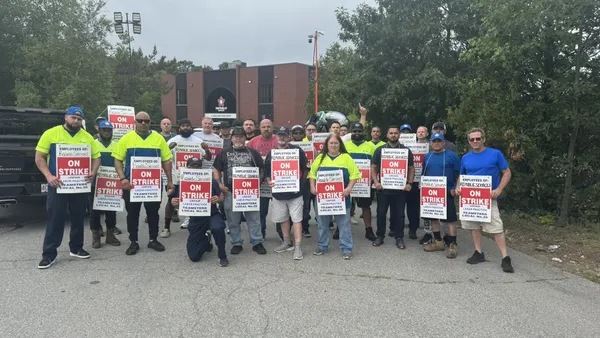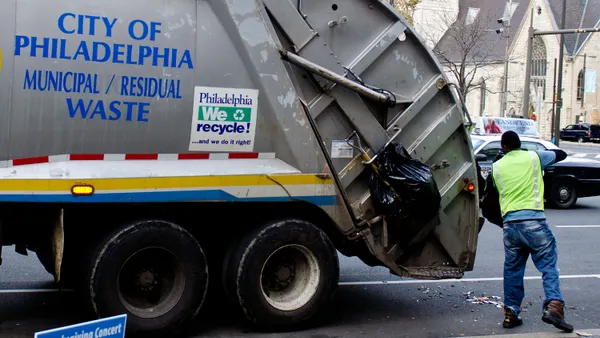Dive Brief:
- Washington, D.C. Mayor Muriel Bowser recently announced three new projects to reduce rodent populations as part of her ongoing "Back to Basics" program. The city experienced a 65% increase in 311 calls about rodents between 2015 and 2016 and attributes much of that to "inappropriately stored garbage."
- The city's Department of Public Works (DPW) is working with the Office of the Chief Technology Officer and Department of Health to place 25 new solar trash cans and 400 "smart" cans in high-traffic rodent areas around the city. The solar-powered cans are said to be rodent-proof and the other cans will provide DPW crews real-time information about when they need to be emptied.
- The Department of Small and Local Business Development is also offering grants for commercial compactors to help businesses manage their refuse, recyclables or organic waste in sealed containers. Businesses can receive up to $13,500 to buy a compactor, or $9,000 to lease one, with enough funding available for an estimated 60 recipients.
Dive Insight:
In addition to these latest announcements, multiple city agencies have been conducting targeted clean-ups in alleys around the city, sending pest control teams to work on public property and educating residents about best practices. Most of these tips revolve around the basic concept of limiting opportunities for rodents to get into food sources by keeping containers sealed and not putting waste out for collection earlier than necessary.
Whether it's rats, squirrels, raccoons or bears, municipalities around the country often struggle to keep animals out of the trash and have tried a variety of methods. In some cases this means cracking down on illegal dumping and cleaning alleyways to take away their habitats. Ongoing education and new collection options such as the commercial compactors in D.C. may help as well.
Though it's no secret that one of the most effective long-term solutions would be to get organic material out of waste stream entirely. Storing organic material in sealed containers for residential or commercial collection — as opposed to plastic garbage bags or loose lid bins — cuts off a key food source for rodents while also helping cities meet their diversion goals. D.C. DPW sees organics diversion as a key part of its future plans and is currently exploring multiple regional processing options. A recent report estimated that nearly 149,000 tons of food and yard waste could be collected in the D.C. every year.










